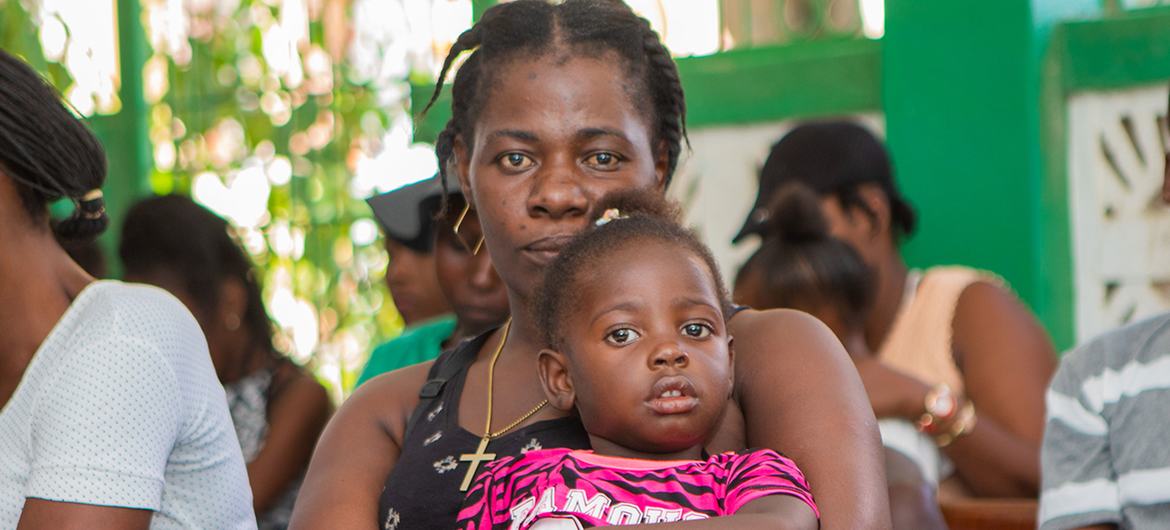
-
Published: 13 February 2023

Long plagued by crisis — natural disasters, political turmoil, deep poverty and waves of cholera — Haiti spiraled into chaos after the 2021 assassination of President Jovenel Moïse.
Written by| ANNA SAM
Feb 13, 2023 - PORT-AU-PRINCE, Haiti
Humanity section - CJ journalist
Sexual violence has long been used as an instrument of war around the world, a barbaric way to sow terror in communities and assert control.
“They’re running out of tools to control people,” said Renata Segura, deputy director for Latin America and the Caribbean for International Crisis Group. “They extort, but there’s only so much money that can be extorted from people that are really poor. This is the one thing they have they can inflict on the population.”
That fear has rippled across Port-au-Prince. Parents hesitate to send their children to school, worried they could be kidnapped or raped by gangs. By night, the buzzing streets of the city empty.
For women especially, going outside the house is a risk. So is fleeing: Gangs use the threat of rape to stop communities from abandoning the areas they control.
Helen La Lime, U.N. special envoy in Haiti, told the Security Council in late January that the gangs employ sexual violence to “destroy the social fabric of communities,” particularly in zones controlled by rival gangs.
Compounding that is severe underreporting, making it difficult for any authority to grasp the full extent of the damage. Women fear gangs will seek revenge on them and trust Haitian police just about as much.
The country’s current government, which many view as illegitimate, declined to comment on what it is doing to address the issue.
The U.N. documented 2,645 cases of sexual violence in 2022, a 45% increase from the year before. That figure is just a fraction of the real number of assaults.
Meanwhile doctors like Jovania Michel are trying to fill in the gaps.
Michel works in one of the only hospitals in Cite Soleil, the epicenter of the gang wars in Port-au-Prince. There, she sees mothers who were gang-raped after their husbands were killed; sexual violence survivors living on the streets, unable to return home out of fear that it could happen again; and survivors suffering from sexually transmitted infections.
That was the case for one 36-year-old woman, who spoke with the AP dressed in a shirt with bright red roses, her hair pulled back carefully in braids. She asked to remain unnamed for fear of retaliation.
The woman once ran a boutique with her husband in Haiti’s capital to put her two daughters and son through school. In July, a group of armed men, members of the gang G-Pep, showed up on their doorstep and told them they needed money for bullets.
Unable to get the cash, the men took her husband away at 8 p.m.
The next day, she found his body in a gutter. She fled the neighborhood, sending her children to live with friends and family in other parts of the city. Meanwhile, she slept alone on the streets, joining at least 155,000 other Haitians forcibly displaced by violence.
In December, when she tried to return home, the gangsters raped and beat her.
“I’m a professional, and out of nowhere these bandits come … and made me lose everything. I’m not good. I’m not okay. It all makes me really angry. I got to a point that I wanted to kill myself,” the woman said.
When she tried to report the rape to police, they told her that they didn’t handle gang cases.
Today, sleeping in a park with other forcibly displaced Haitians, the one thing that brings her hope is that her children, whom she rarely sees, may still live a better life.
But she worries what deep instability and rising gang control in Haiti will mean.
“I’m not living in a good country,” she said.
(AP)source
